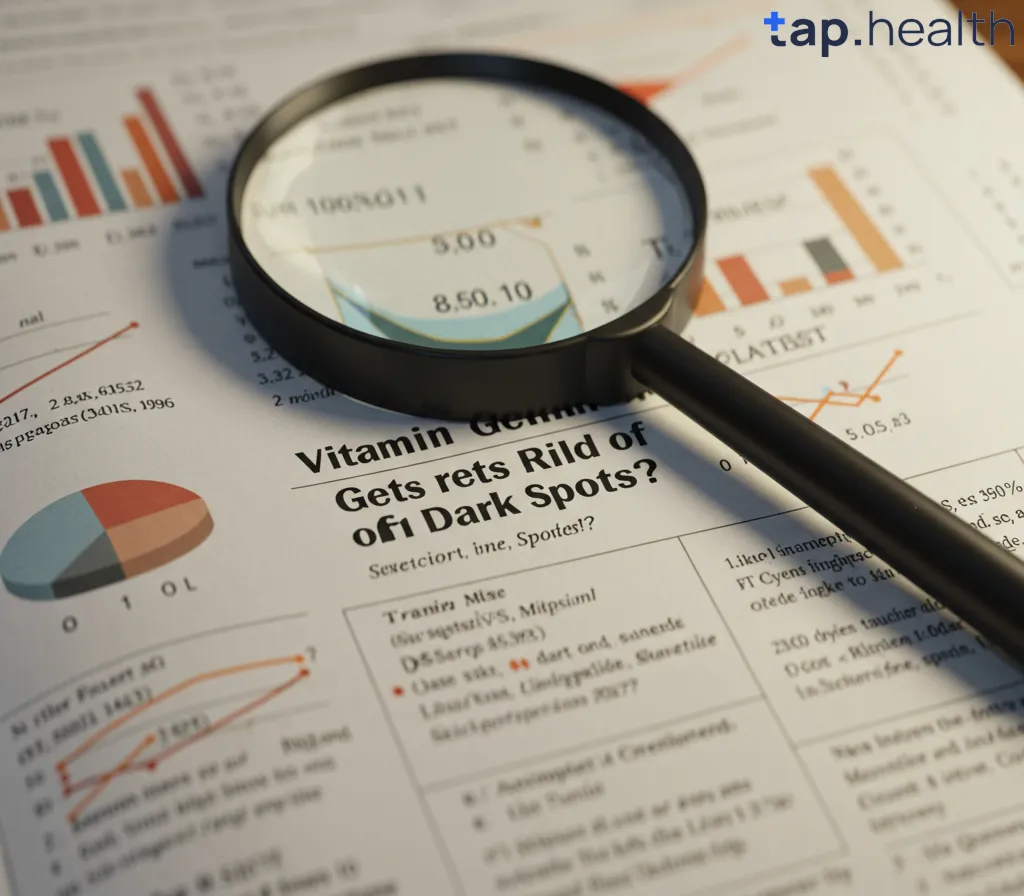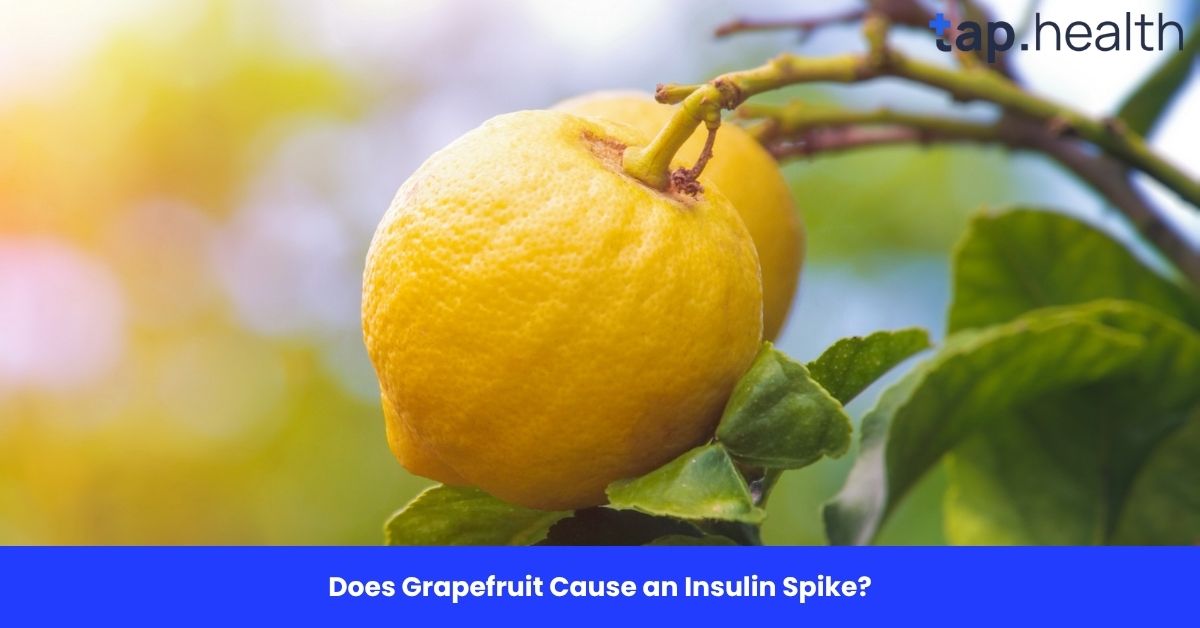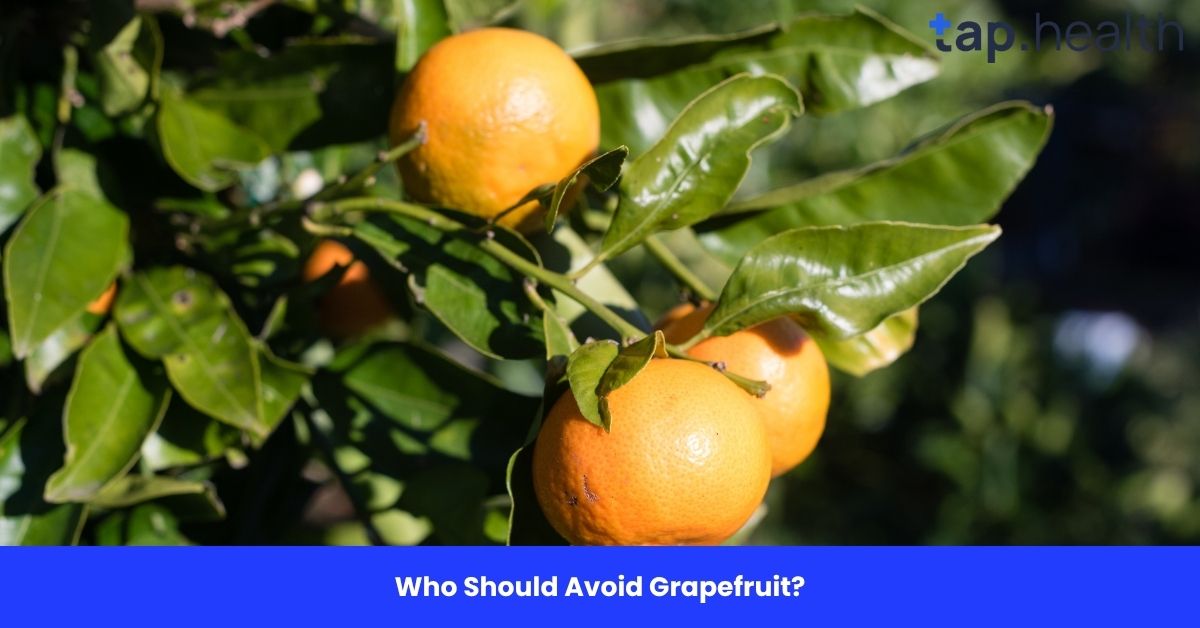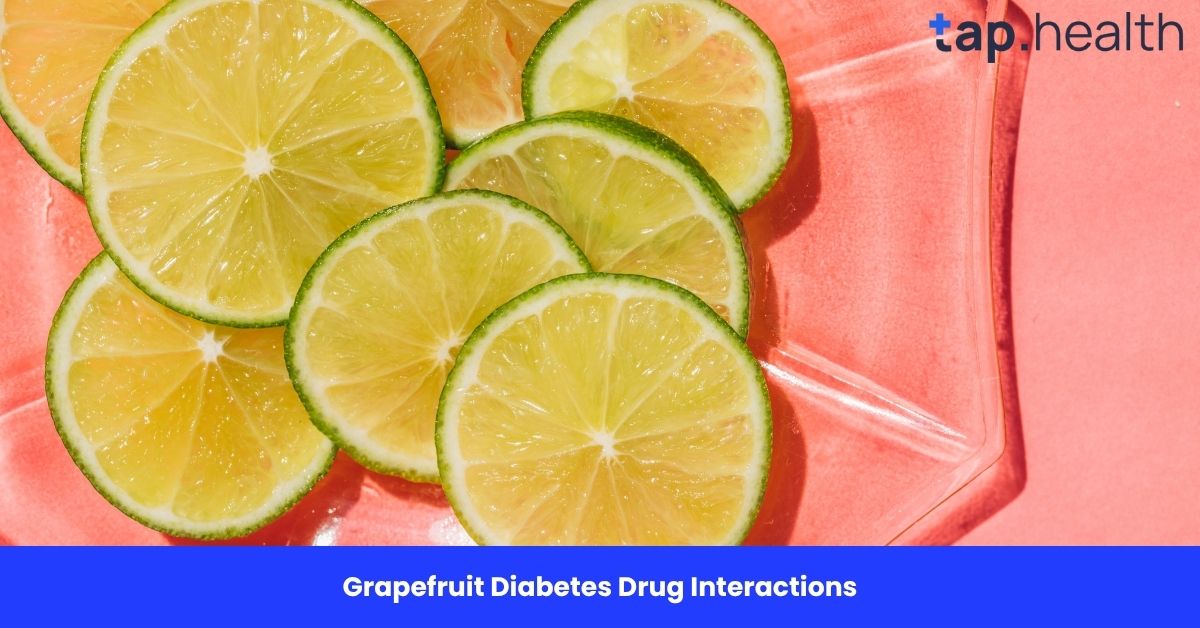If you’ve ever looked in the mirror and noticed brown spots, sunspots, acne marks, or uneven skin tone, you’re not alone. Dark spots—also called hyperpigmentation—are one of the most common skin concerns, affecting people of all ages and skin types.
They can show up after:
- A pimple heals
- Too much sun exposure
- Hormonal changes (like during pregnancy)
- Skin injuries or inflammation
And once they’re there, they can be stubborn. You might try scrubs, creams, or even expensive treatments—only to see little change.
So, many people ask:
“What vitamin gets rid of dark spots?”
The good news? Several vitamins can help fade dark spots over time—naturally, gently, and without harsh chemicals.
In this guide, we’ll break down the best vitamins for dark spots, how they work, which foods to eat, and what skincare products to look for—all in simple, easy-to-understand language.
We’ve researched this from trusted health and dermatology sources like the American Academy of Dermatology (AAD), Mayo Clinic, Cleveland Clinic, National Institutes of Health (NIH), and Harvard Health to make sure everything is accurate and up to date.
Let’s dive in.
What Causes Dark Spots on the Skin?
Before we talk about vitamins, let’s understand why dark spots happen.
Your skin has a pigment called melanin. It’s what gives your skin, hair, and eyes their color. When your skin is injured, irritated, or exposed to UV rays, it can produce too much melanin in one area—leading to a dark spot.
Common Types of Dark Spots:
| Post-inflammatory hyperpigmentation (PIH) | Acne, cuts, burns, eczema | Anywhere, especially face |
| Sunspots (age spots/liver spots) | UV exposure over time | Face, hands, shoulders, arms |
| Melasma | Hormonal changes (pregnancy, birth control) | Cheeks, forehead, upper lip |
| Freckles | Genetics + sun exposure | Face, arms, shoulders |
Important: While most dark spots are harmless, any spot that changes in color, shape, or size should be checked by a doctor—it could be skin cancer.
So, What Vitamin Gets Rid of Dark Spots?
There’s no single “magic” vitamin that erases dark spots overnight. But several vitamins and antioxidants can help fade them over time by:
- Slowing down melanin production
- Speeding up skin cell turnover
- Protecting skin from sun damage
- Reducing inflammation
The top 5 vitamins that help get rid of dark spots are:
- Vitamin C
- Vitamin E
- Vitamin A (Retinoids)
- Vitamin B3 (Niacinamide)
- Vitamin K
Let’s look at each one in detail.
1. Vitamin C – The Brightening Powerhouse
Why Vitamin C Works for Dark Spots
Vitamin C is one of the most effective and well-studied vitamins for fading dark spots.
It works in three powerful ways:
- Blocks melanin production – It stops the enzyme (tyrosinase) that makes melanin, so less pigment forms.
- Brightens skin – It gives your skin a healthy glow and evens out tone.
- Protects against sun damage – As a strong antioxidant, it fights free radicals caused by UV rays and pollution.
Studies show that vitamin C serums can significantly reduce hyperpigmentation and improve skin texture in 4–12 weeks.
How to Use Vitamin C
- Topical (best way): Use a serum with 10–20% vitamin C (L-ascorbic acid) once daily, preferably in the morning.
- Oral: Eat vitamin C-rich foods or take a supplement (adults need 75–90 mg/day).
Tip: Vitamin C is unstable—store it in a cool, dark place and use it within 3 months of opening.
Best Food Sources
- Oranges, lemons, grapefruit
- Strawberries, kiwi, papaya
- Bell peppers (especially red)
- Broccoli, kale, spinach
2. Vitamin E – The Skin Protector
How Vitamin E Helps Fade Dark Spots
Vitamin E is a powerful antioxidant that protects your skin from damage. While it doesn’t fade dark spots on its own, it boosts the effects of vitamin C when used together.
It also:
- Repairs damaged skin
- Reduces inflammation
- Helps heal scars and acne marks
Many dark spot creams combine vitamin C + vitamin E for stronger results.
How to Use Vitamin E
- Topical: Found in oils, moisturizers, and serums. Can be used daily.
- Oral: Adults need 15 mg (22.4 IU) per day.
Warning: Pure vitamin E oil can clog pores or irritate sensitive skin. Patch test first.
Best Food Sources
- Almonds, sunflower seeds
- Spinach, broccoli
- Avocados
- Sunflower and safflower oils
- Wheat germ
3. Vitamin A (Retinoids) – The Skin Renewer
Why Vitamin A Fades Dark Spots
Vitamin A, especially in the form of retinoids, is a gold-standard ingredient in skincare.
It helps with dark spots by:
- Speeding up skin cell turnover – Old, pigmented cells are shed faster.
- Unclogging pores – Prevents acne that leads to dark marks.
- Stimulating collagen – Makes skin smoother and more even.
Types of retinoids:
- Over-the-counter: Retinol, retinaldehyde
- Prescription: Tretinoin (Retin-A), adapalene
Studies show retinoids can reduce hyperpigmentation and improve skin tone in 8–12 weeks.
How to Use Vitamin A
- Start with low-strength retinol (0.25%–0.5%) 2–3 nights a week.
- Apply at night—retinoids make skin more sensitive to the sun.
- Always use sunscreen during the day.
Side effects: Dryness, peeling, redness. Start slow and moisturize well.
Best Food Sources
- Sweet potatoes, carrots (rich in beta-carotene—your body turns it into vitamin A)
- Spinach, kale
- Eggs, liver (animal sources)
- Red bell peppers
Note: Too much preformed vitamin A (from supplements or liver) can be toxic. Stick to food sources unless directed by a doctor.
4. Vitamin B3 (Niacinamide) – The Gentle Brightener
Why Niacinamide Works for Dark Spots
Niacinamide (vitamin B3) is a superstar for sensitive skin. It’s gentle, effective, and widely used in skincare.
It helps dark spots by:
- Blocking melanin transfer to skin cells
- Reducing inflammation (great for acne-prone skin)
- Strengthening the skin barrier
- Minimizing pores and redness
Clinical studies show that 4–5% niacinamide can significantly reduce dark spots and improve skin tone in 4–8 weeks.
How to Use Niacinamide
- Found in serums, moisturizers, and toners.
- Use once or twice daily—it’s safe for most skin types.
- Can be combined with vitamin C, retinol, and sunscreen.
Bonus: It doesn’t cause irritation like some other brighteners.
Best Food Sources
- Chicken, turkey, tuna
- Peanuts, mushrooms
- Brown rice, whole grains
- Green peas, potatoes
- Fortified cereals
5. Vitamin K – The Bruise and Spot Reducer
Can Vitamin K Help with Dark Spots?
Vitamin K is best known for blood clotting, but it’s also used in skincare for:
- Healing bruises
- Reducing dark circles under eyes
- Fading post-acne marks and scars
It may help with vascular dark spots (like those from broken capillaries) but is less effective for general hyperpigmentation.
How to Use Vitamin K
- Found in creams and eye gels.
- Apply to affected areas once or twice daily.
Note: Not as well-studied for dark spots as other vitamins, but often included in combo products.
Best Food Sources
- Kale, spinach, broccoli (vitamin K1)
- Fermented foods like natto (vitamin K2)
- Brussels sprouts, cabbage
Other Nutrients That Help Fade Dark Spots
Besides vitamins, these nutrients also support brighter, more even skin.
1. Alpha Arbutin – Natural Skin Lightener
- A plant-based ingredient that blocks melanin production.
- Found in bearberry, cranberry, and blueberry.
- Gentle and effective—great for sensitive skin.
2. Azelaic Acid
- Reduces inflammation and melanin.
- Often prescribed for melasma and rosacea.
- Available in creams (over-the-counter and prescription).
3. Licorice Root Extract
- Contains glabridin, which lightens dark spots.
- Anti-inflammatory and soothing.
4. Collagen and Hyaluronic Acid
- Don’t fade pigment, but keep skin plump and healthy—making dark spots less noticeable.
Best Foods to Eat to Reduce Dark Spots
You are what you eat—and your diet plays a big role in skin health.
Skin-Brightening Foods
| Citrus fruits | High in vitamin C |
| Berries | Antioxidants fight skin damage |
| Leafy greens | Vitamins A, C, E, K |
| Carrots & sweet potatoes | Beta-carotene (vitamin A) |
| Nuts and seeds | Vitamin E, healthy fats |
| Fatty fish (salmon) | Omega-3s reduce inflammation |
| Green tea | Antioxidants protect skin |
| Tomatoes | Lycopene helps protect against sun damage |
Foods to Limit
- Sugar and refined carbs – spike insulin, which can worsen acne and pigmentation
- Dairy (for some) – may trigger acne in sensitive people
- Alcohol – dehydrates skin and causes inflammation
- Fried foods – increase oxidative stress
Skincare Routine to Fade Dark Spots
Want real results? Follow a simple, consistent routine.
Morning Routine
- Cleanse – Use a gentle face wash.
- Vitamin C serum – Apply to damp skin.
- Moisturize – Lock in hydration.
- Sunscreen (SPF 30+) – MOST IMPORTANT STEP. UV rays make dark spots worse.
Night Routine
- Cleanse – Remove dirt and oil.
- Treatment (choose one):
- Niacinamide serum
- Retinol (start 2–3x/week)
- Alpha arbutin
- Moisturize – Keep skin barrier strong.
Tip: Don’t use retinol and vitamin C at the same time if you have sensitive skin. Use vitamin C in the morning, retinol at night.
Sunscreen: The #1 Rule for Preventing Dark Spots
No vitamin or cream will work if you don’t protect your skin from the sun.
UV rays:
- Trigger melanin production
- Make existing dark spots darker
- Slow down the fading process
Always wear sunscreen:
- SPF 30 or higher
- Broad-spectrum (protects against UVA and UVB)
- Every single day—even when it’s cloudy
Reapply every 2 hours if you’re outside.
How Long Does It Take to Fade Dark Spots?
There’s no quick fix. Skin cell turnover takes about 28 days, so most treatments take 6–12 weeks to show visible results.
Timeline:
- 4 weeks: Slight improvement, less redness
- 8 weeks: Noticeable lightening
- 12+ weeks: Significant fading
Be patient and consistent.
Can Vitamins Cause Dark Spots?
No—vitamins themselves don’t cause dark spots. But:
- Too much vitamin A (from supplements) can cause skin peeling and sensitivity.
- Poor diet (low in vitamins) can weaken skin and slow healing.
- Nutrient deficiencies (like low vitamin C) may slow collagen production and skin repair.
Also, some medications (like certain antibiotics or birth control) can cause melasma.
Myths About Vitamins and Dark Spots
Let’s clear up some common myths.
Myth: Lemon juice fades dark spots fast
Truth: Lemon juice is acidic and can burn your skin, especially in the sun. It may cause more pigmentation (phytophotodermatitis). Not safe.
Myth: You only need skincare—diet doesn’t matter
Truth: Healthy skin starts from within. A diet rich in vitamins supports healing and protection.
Myth: Dark spots will go away on their own
Truth: Some do, but many last for months or years without treatment. The sooner you act, the better.
Myth: Only expensive creams work
Truth: Many affordable products with vitamin C, niacinamide, or retinol work just as well as high-end brands.
When to See a Dermatologist
Most dark spots can be treated at home. But see a dermatologist if:
- The spot is growing, changing, or bleeding
- It has irregular borders or multiple colors
- You have sudden melasma or widespread pigmentation
- Over-the-counter products aren’t working after 3 months
Professional treatments include:
- Chemical peels
- Laser therapy
- Microdermabrasion
- Prescription creams (like hydroquinone)
Note: Hydroquinone is effective but should only be used under medical supervision.
Frequently Asked Questions (FAQ) on What Vitamin Gets Rid of Dark Spots?
Q1: What vitamin gets rid of dark spots?
The best vitamins for dark spots are vitamin C, vitamin E, vitamin A (retinoids), vitamin B3 (niacinamide), and vitamin K. They work by reducing melanin, speeding up cell turnover, and protecting skin.
Q2: Does vitamin C remove dark spots?
Yes. Vitamin C blocks melanin production and brightens skin. Used daily in a serum, it can fade dark spots in 4–12 weeks.
Q3: Can vitamin E lighten dark spots?
Vitamin E alone doesn’t lighten spots, but it boosts vitamin C and helps repair skin. Use it in combination for best results.
Q4: Is retinol good for dark spots?
Yes. Retinol (vitamin A) speeds up skin cell turnover, helping shed pigmented cells faster. It’s effective for acne marks and sunspots.
Q5: Can niacinamide remove dark spots?
Yes. Niacinamide (vitamin B3) blocks melanin transfer and reduces inflammation. Studies show 4–5% niacinamide can fade dark spots in 4–8 weeks.
Q6: Does vitamin K help with dark spots?
Vitamin K is best for bruises and under-eye circles. It may help with some types of pigmentation but is less effective than vitamin C or retinol.
Q7: How long does it take for vitamins to fade dark spots?
Most people see results in 6–12 weeks with consistent use. Skin renewal takes about 28 days, so patience is key.
Q8: Can diet affect dark spots?
Yes. Eating foods rich in vitamins C, A, and E supports skin repair and brightness. Avoid sugar and processed foods, which can worsen inflammation.
Q9: Does sunscreen help with dark spots?
Absolutely. Sunscreen prevents dark spots from getting darker and stops new ones from forming. Use SPF 30+ every day.
Q10: Can lemon juice remove dark spots?
No. Lemon juice is too acidic and can burn your skin, especially in the sun. It may cause more pigmentation. Avoid it.
Q11: Is apple cider vinegar good for dark spots?
No strong evidence. It’s acidic and can irritate skin. Not recommended.
Q12: Can hormonal changes cause dark spots?
Yes. Melasma is caused by hormones (pregnancy, birth control) and sun exposure. It appears as patches on the face.
Q13: Are dark spots permanent?
Not always. Many fade with time and treatment. But without sun protection, they can come back or darken.
Q14: Can acne leave dark spots?
Yes. This is called post-inflammatory hyperpigmentation (PIH). It’s more common in darker skin tones. Treat with niacinamide, vitamin C, or retinoids.
Q15: What is the best vitamin C serum for dark spots?
Look for a serum with:
- 10–20% L-ascorbic acid
- Vitamin E and ferulic acid (boosts effectiveness)
- Air-tight, dark bottle (protects the formula)
Popular brands: SkinCeuticals C E Ferulic, The Ordinary Vitamin C Suspension.
Final Tips: How to Get Rid of Dark Spots Naturally
Want clearer, brighter skin? Follow these steps:
✅ Use a vitamin C serum every morning
✅ Apply niacinamide or retinol at night
✅ Wear sunscreen every day
✅ Eat more fruits, veggies, and healthy fats
✅ Be patient—results take 6–12 weeks
✅ Avoid picking at acne (prevents scars)
✅ See a dermatologist if spots don’t fade
Dark spots don’t have to be permanent. With the right vitamins and habits, you can fade them, prevent new ones, and love your skin again.



